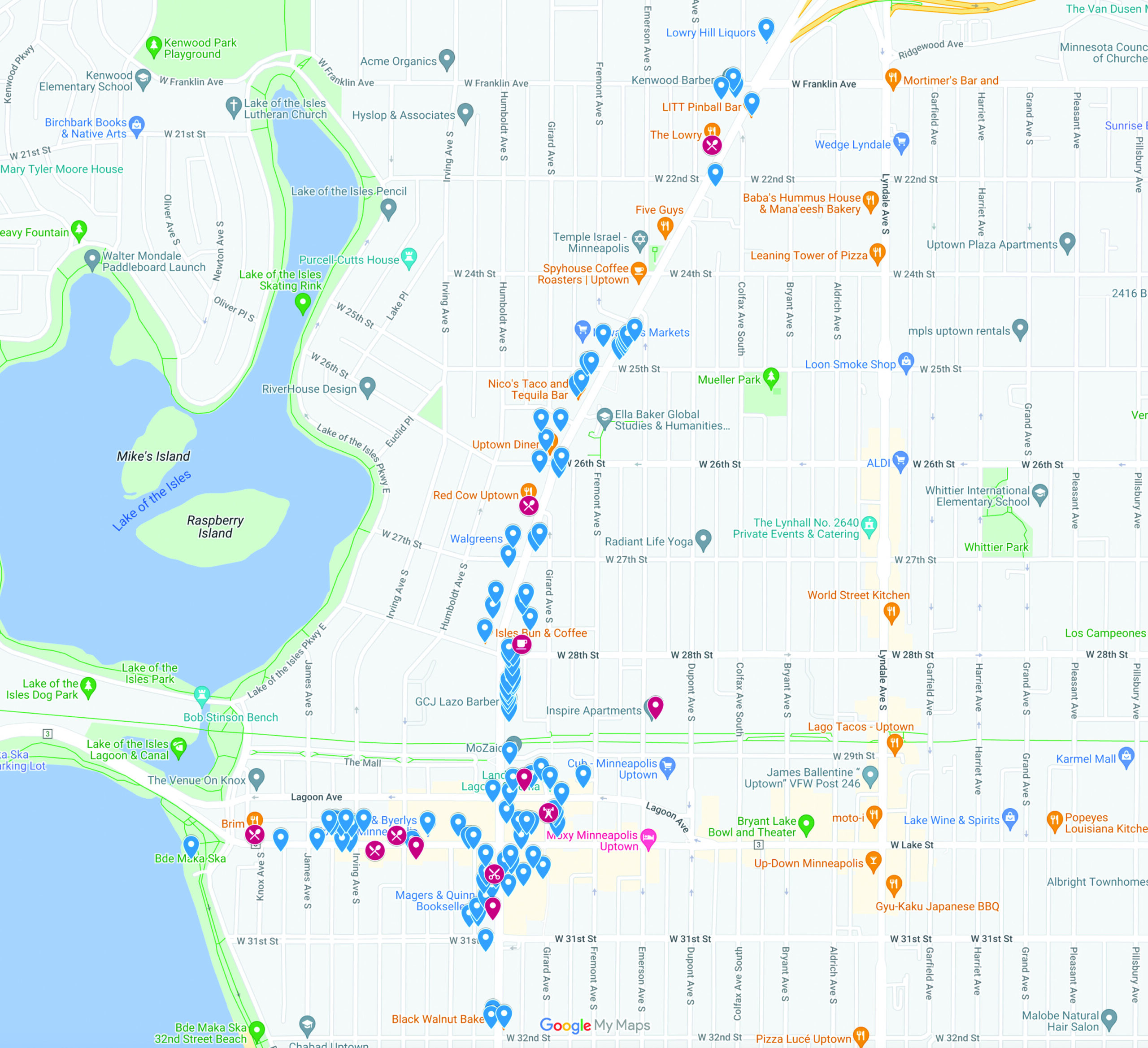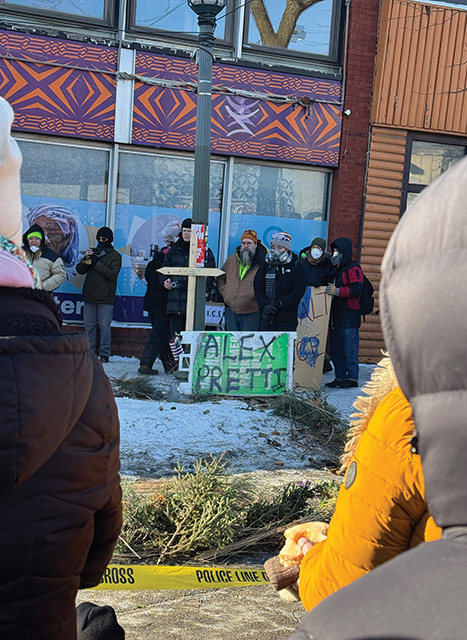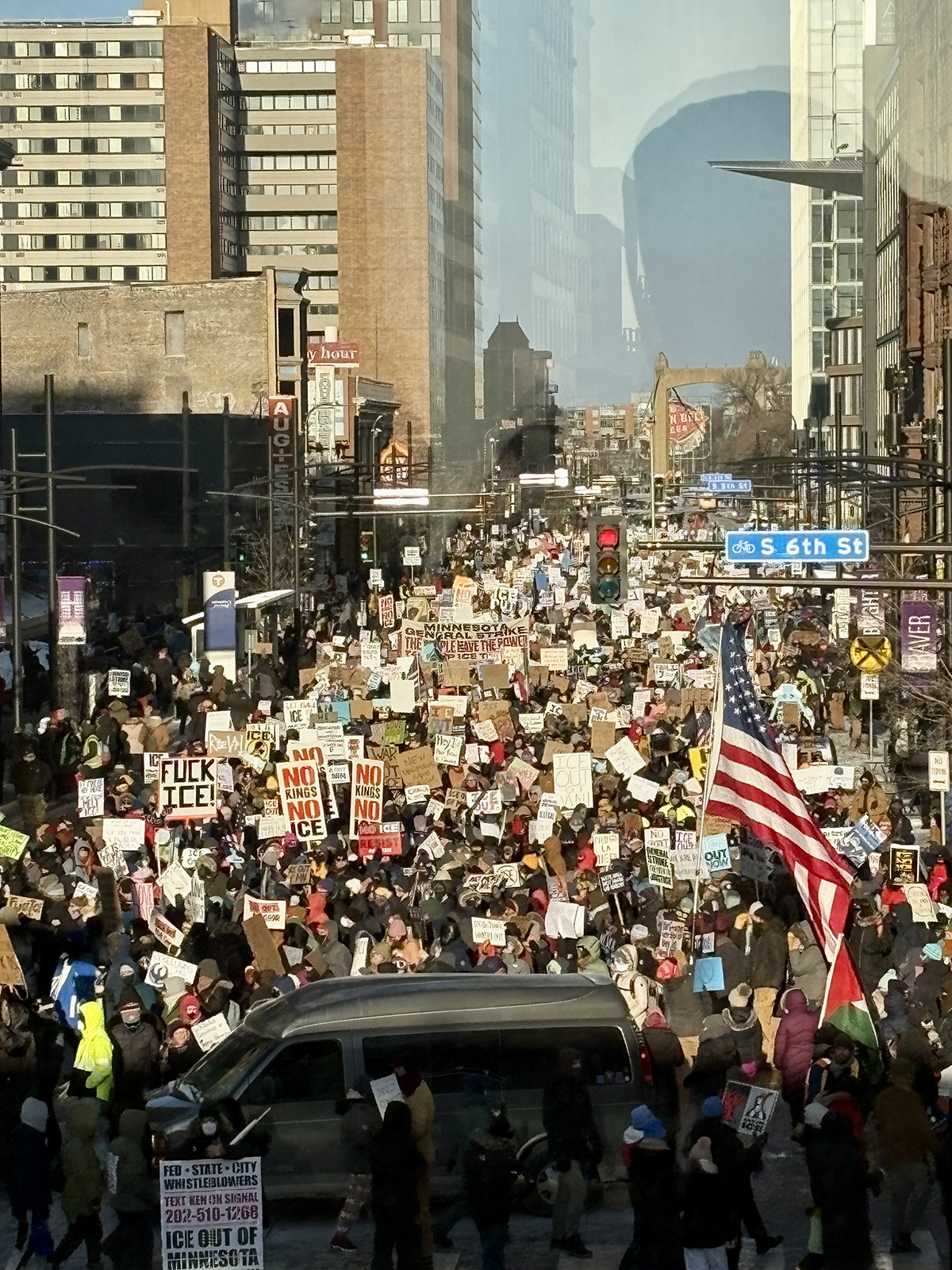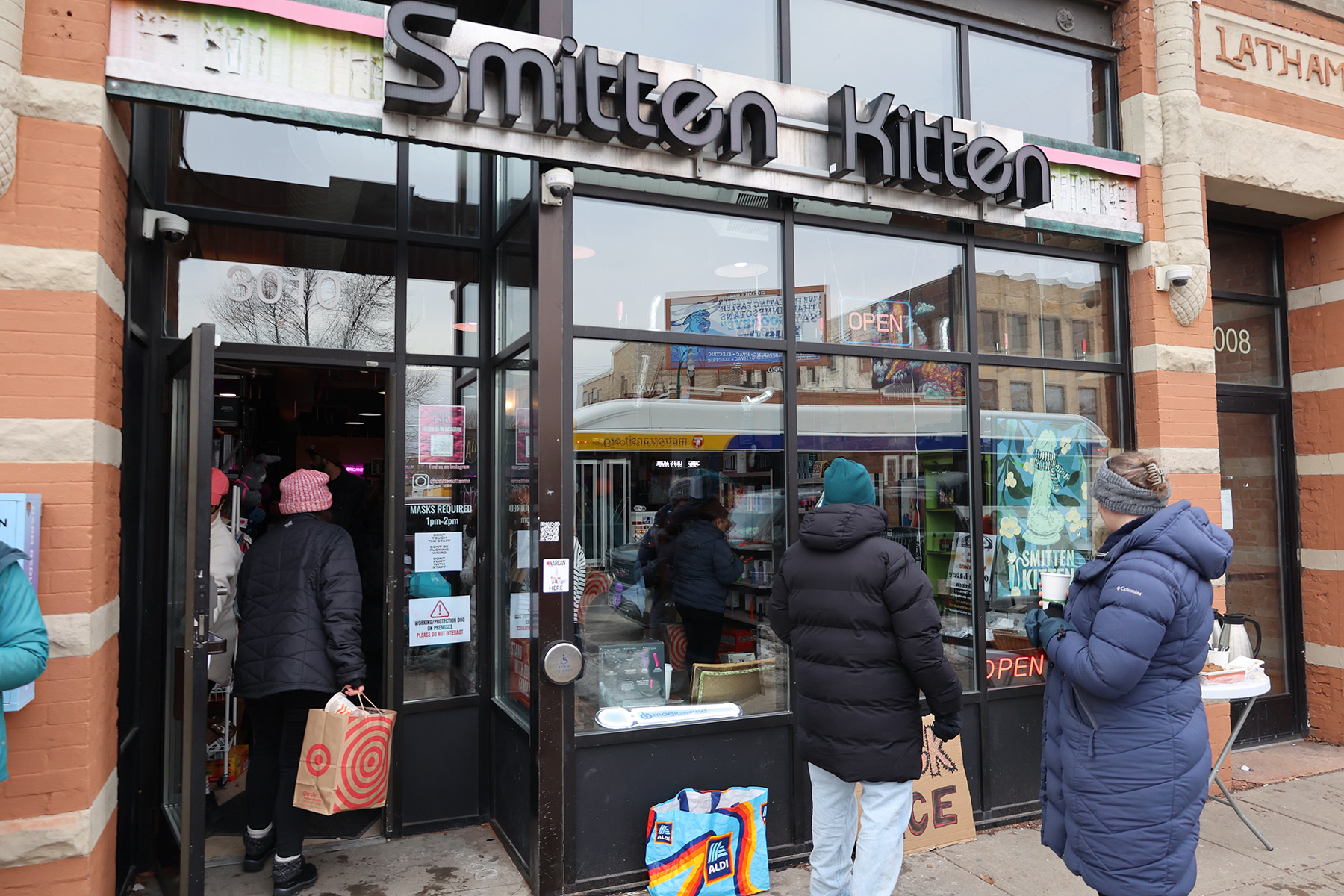Disruptive, dusty and difficult: that’s how Uptown business owners describe the ongoing reconstruction of Hennepin Avenue South. The corridor boasts a range of eclectic and diverse storefronts: nail salons, coffee and boba shops, sit-down restaurants, barbershops, gyms and even a build-your-own jewelry store. Now, however, customers must navigate through the machinery, makeshift cross-walks and a lack of street parking to access these businesses.
According to the city’s project website, the goal of the reconstruction is to support the city’s climate vision, provide upgrades to aging infrastructure and create space for future Bus Rapid Transit E Line stops. The modified corridor will feature wider sidewalks, a two-way protected bikeway on the east side of the street, a median between the two vehicle lanes and one dedicated transit lane on each side of the street. The first phase of the construction began on April 1 and is expected to be completed around the end of November, with the second phase, from 26th Street to Douglas Avenue, beginning in April 2025.
Since the construction began, traffic from 26th Street to 28th Street has been reduced to one southbound lane with no street parking spaces. Starting at 28th Street, the road is entirely occupied by the construction zone, with a few partial crosswalks allowing entry to businesses. For many business owners, the reduced access to their storefronts and the absence of street parking have proved detrimental.
When Robert Sorenson learned of the construction plan, he tried to sell his bead shop, Bobby Bead, which has resided in Uptown for 32 years and is the largest bead store in a five-state area. Ultimately, he was unsuccessful, and Bobby Bead remains open: “We’re just determined to stay alive,” he said. He noted that shoppers have been forced to walk between one and five blocks to access his store, and that lack of parking and walking distance is especially hard for elderly customers.
Meanwhile, Jake Granheim, assistant manager of Frattallone’s Hardware & Garden, approximated a 20% decrease in sales for the year at the store, located at Hennepin near 28th Street. He mentioned that regular customers who know the area can traverse the construction zone. However, people who are “kind of new to the area … don’t even want to probably even try to come to us because it’s such a nuisance,” Granheim said.
The effect of construction on overall sales has not been shared equally among Uptown’s businesses. Uncommon Grounds, the oldest business in Uptown at 35 years old, has struggled less, according to the owner, Dale Lee. “It slowed it down some, but it hasn’t hurt us as much as I thought it might,” he said. He credits Uncommon Grounds’ established audience for keeping it afloat, but he worries about the impact on newer businesses.
Jatin Sharma is the president of India Palace Uptown Grill and has coped with an estimated 30 to 35% loss of sales by reducing his staff. Still, he is grateful to have other restaurants and a few parking spots — which not every business is fortunate enough to have. Other businesses, including Frattallone’s, have added new signs to make it clear that they are still open during construction. While the city placed a few orange signs along the Hennepin corridor that read ‘businesses are open,’ “Those aren’t good enough,” said Damla Erten, vice president of Sencha Tea Bar.
Aside from the removal of parking spaces, business owners complain of the noise and dust brought by the construction, as well as the speed of the work. “I’m seeing a lot of days, straight days, where there’s no work being done in front of us at all,” Granheim said. He believes that the effect on businesses could have been minimized if the work was concentrated and completed in smaller areas at a time.
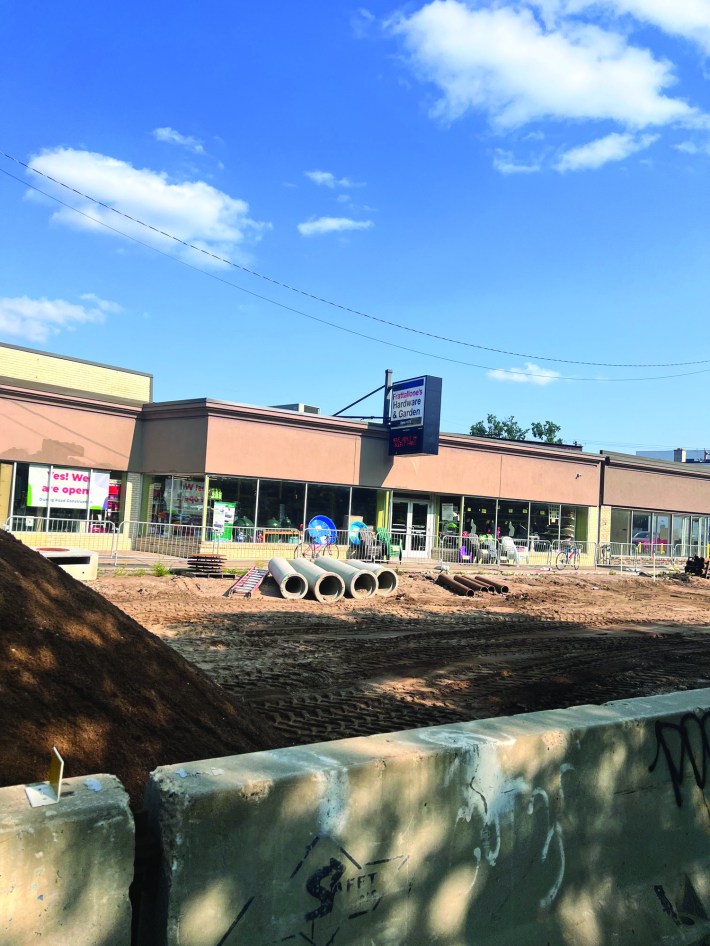
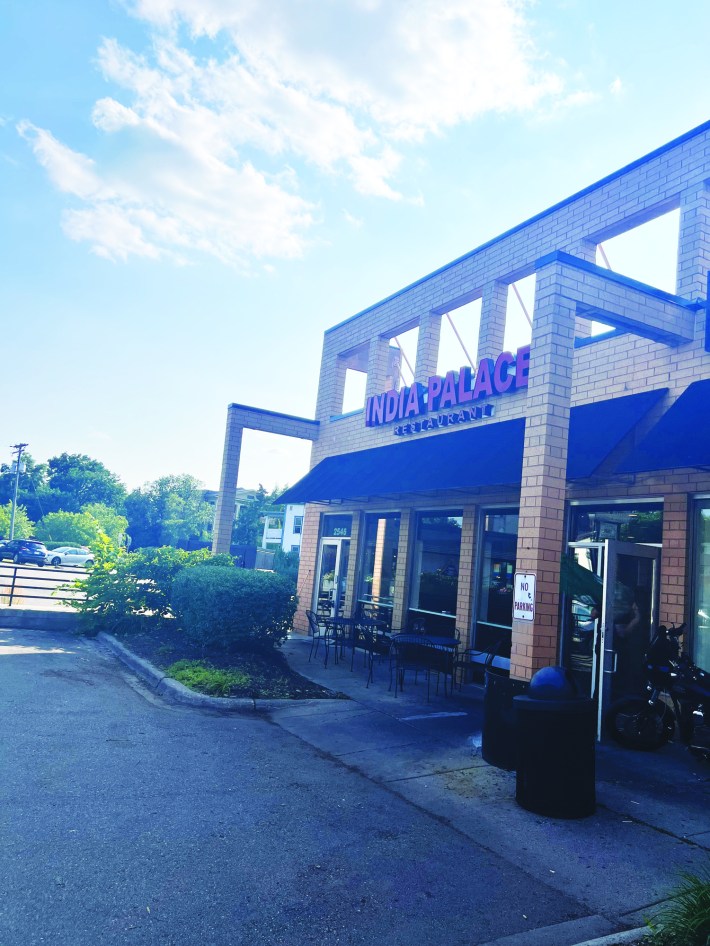
The construction project is just one of many challenges that Uptown businesses have faced in recent years. Most notably, the COVID-19 pandemic and social unrest after the murder of George Floyd caused many businesses to leave the area. These strains are in addition to the challenges that all small businesses face when competing with large franchises and online retail and other parts of the metro, like suburbs that have ample parking and strong police force and trendy neighborhoods like the North Loop.
Erten sees the slowing business during the construction as a small part of an existing downward trend: “Considering we didn’t even really get a chance to recover from everything else from the last couple of years, it’s very difficult to also have major reconstruction happening in front of us,” she said.
While businesses have had varied experiences with the construction, there is a shared sense that the city did not consider their perspective. Maren Findlay, manager of Sencha Tea Bar, sees the context of Uptown businesses’ struggles as important to understand these sentiments. “The original proposal and original conversations for the construction project started in 2020, which was the worst time physically possible to try to have conversations with businesses in the Uptown area because there was so much other stuff going on,” she said.
While the city continued on with the plan as usual, the circumstances Uptown businesses were facing were anything but usual. Now, the city holds weekly stakeholder virtual meetings every Friday from 10-11 a.m., but this time may be inconvenient for many small business owners.
Erten and Findlay were inspired by the struggles they witnessed in the Uptown community and have responded by founding the Uptown Community Coalition (UCC). UCC works to provide assistance to businesses and community members on a variety of issues — including the reconstruction, but also crime and an increasing unhoused population.
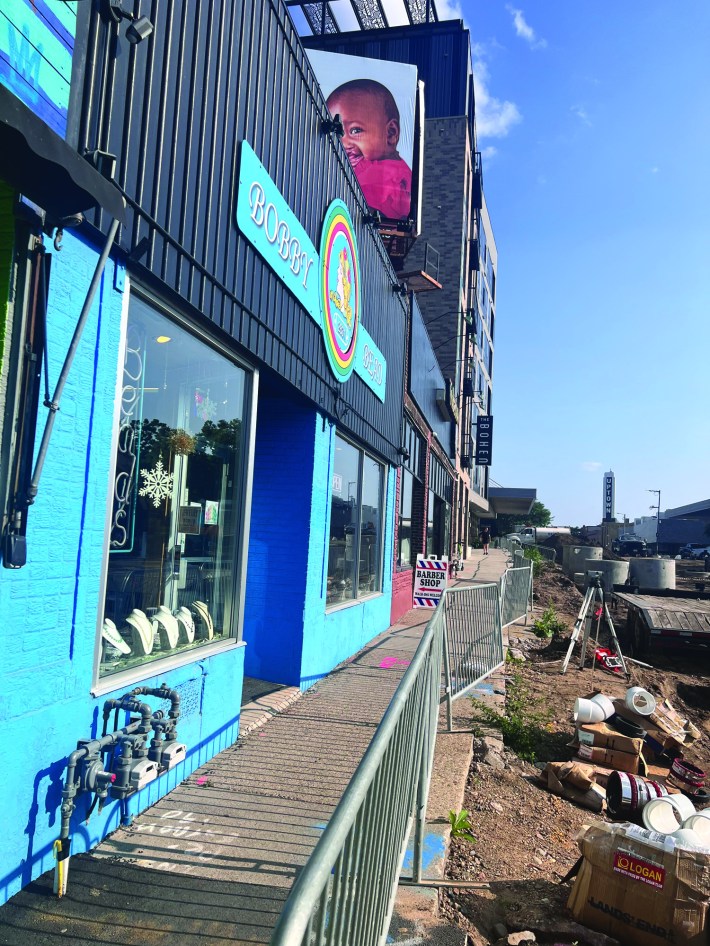
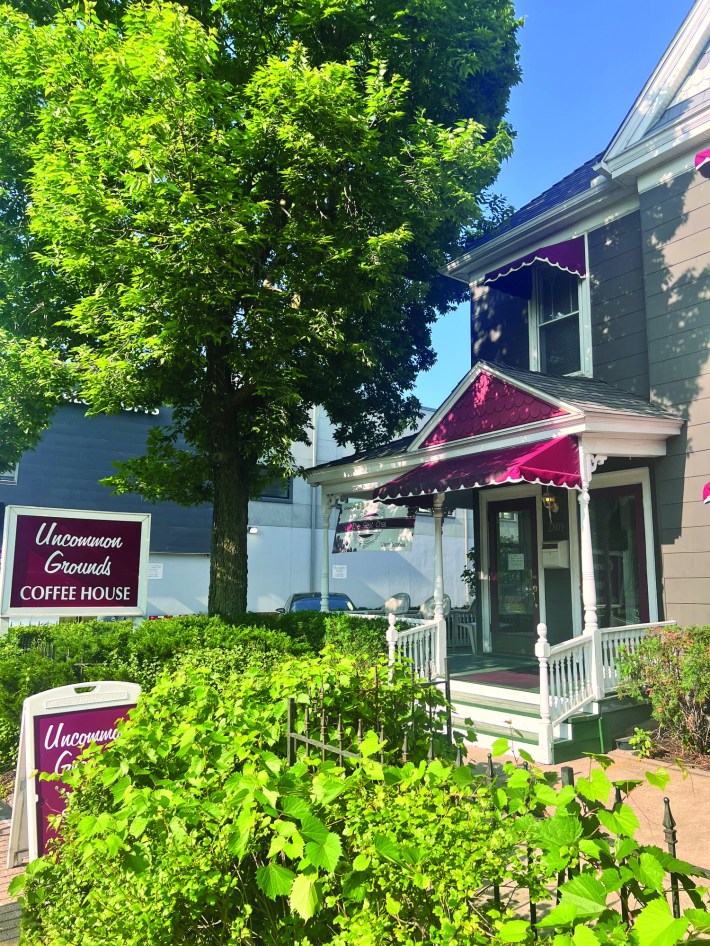
One of their current projects is to work with the city to improve the accessibility of the construction zones. “Even for an able-bodied person, there are areas that are, like, very hard to navigate through,” Erten said. “So, imagine what that’s like for anybody who’s not able-bodied.” Erten and Findlay have also advocated for improved signage entering the corridor and are planning an informational session with the construction crew and local business owners.
Despite these challenges, they and other business owners expressed hope for the future of the neighborhood. Findlay explained her optimism: “Uptown is a really, really resilient neighborhood … really all it needs is the right amount of support from the people who live here and like to be here who want to feed into their own community.”
